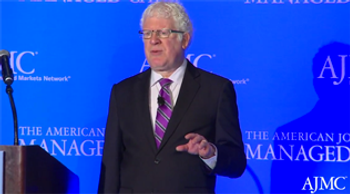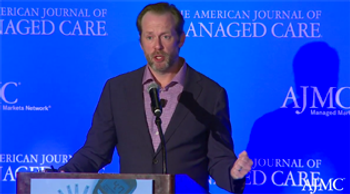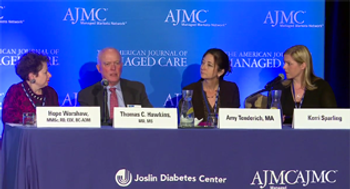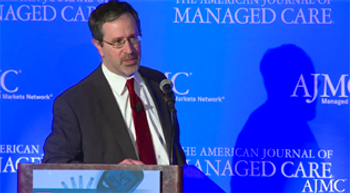
Editorials that appeared during the run-up to the FDA advisory committee meetings noted the lack of long-term cardiovascular data and the need to be cautious about lowering cholesterol at any cost.

Editorials that appeared during the run-up to the FDA advisory committee meetings noted the lack of long-term cardiovascular data and the need to be cautious about lowering cholesterol at any cost.

Developed jointly by Sanofi and Regeneron, alirocumab (Praluent) was approved 13-3 by an FDA advisory committee.

Results are the first from a cardiovascular safety trial in the GLP-1 agonist class. A commentator at the 75th Scientific Sessions of the American Diabetes Association asked whether the FDA-mandated studies are giving physicians the right information.

The long-awaited results, presented Monday at the 75th Scientific Sessions of the American Diabetes Association, are expected to strengthen sitagliptin's position against its competitors in the DPP-4 inhibitor class.

In a packed session at the 75th Scientific Sessions of the American Diabetes Association, the lead investigator told attendees how a matchstick-size device delivered exenatide, producing lower blood glucose levels.

An innovative education method asks an influential family member to take diabetes classes alongside the person with T2DM. The intervention produced positive health results for African Americans in a North Carolina study.

Patients who received canagliflozin from their health plan showed significant A1C improvement, even though the study group had poor glycemic control despite treatment with multiple therapies. The study period covered the months immediately following FDA approval.

The study found that certified diabetes educators were able to act quickly on intensifying therapy, resulting in improved A1C and cholesterol.

A study of Medicare claims suggests that policies that ask seniors to pay more out of pocket for prescriptions may lead to lower adherence and result in higher healthcare costs.

The study published in The Lancet found a 45% rise in global diabetes during a study period that spanned more than a decade, between 1999 and 2013.

Studies presented at the 2015 American Diabetes Association Scientific Sessions take different approaches on what percentage of carbohydrates should be part of a diet for persons with type 2 diabetes.

Osama Hamdy, MD, PhD, and other researchers at Joslin Diabetes Center showed that patients with obesity and diabetes who lost at least 7% of their weight the first year stood a better chance of keeping it off.

Just as diabetes care started the movement toward population management, it is leading the way to new payment models, according to speakers who appeared at a symposium to open the 75th Scientific Sessions of the American Diabetes Association.

We assessed challenges and barriers to annual diabetic eye examinations for a managed care Medicaid population and make recommendations to improve population-level screening.

This week CMS released their third round of annual data, the value-based topics of the American Society of Clinical Oncology gained new ground, and The American Journal of Managed Care will travel to their 75th session of the American Diabetes Association in Boston.

Robert A. Gabbay, MD, PhD, FACP, chief medical officer at Joslin Diabetes Center, believes that payment reform is the tool that will drive innovation and value in the healthcare industry.

John Kitchens, MD, discusses the impact of diabetic eye disease and macular diabetic edema for patients on both a societal standpoint and an individual standpoint.

Brenda Schmidt, MS, MBS, moderates a discussion on the diabetes online community and the opportunity for social media in type 1 and type 2 diabetes care. She is joined by panelists Hope Warshaw, MMSc, RD, CDE, BC-ADM; Thomas C. Hawkins, MD, MS; Amy Tenderich, MA, and Kerri Sparling.

Silvio Inzucchi, MD, professor, Yale University School of Medicine; sectional chief of endocrinology, and medical director of Yale Diabetes Center, believes that the landscape for diabetes is constantly changing in terms of managing glucose-lowering medications.

Published in Diabetes Care, the study found that earlier detection, and importantly, initiating treatment early, can reduce cardiovascular risks.

At Patient-Centered Diabetes Care held April 16-17 in Boston, Massachusetts, Patrick J. O'Connor, MD, MA, MPH, senior clinical investigator at HealthPartners Institute for Education and Research and clinical associate professor or family medicine and community health at the University of Minnesota School of Medicine, kicked off the meeting with a discussion communicating treatment information to patients.

Children and families can benefit so much from these camps. Yes, MCOs should pay and here is why.

Coverage from the 64th Scientific Sessions of the American College of Cardiology.

Authors led by Harvard's Frank Hu, MD, write that combating diabetes worldwide requires policy solutions that recognize the societal and environmental forces that work against those who might try to pursue healthier lifestyles. Hu recently spoke at Patient-Centered Diabetes Care 2015, presented by The American Journal of Managed Care and Joslin Diabetes Center.

Coverage from the 64th Scientific Sessions of the American College of Cardiology.

259 Prospect Plains Rd, Bldg H
Cranbury, NJ 08512
© 2025 MJH Life Sciences®
All rights reserved.
